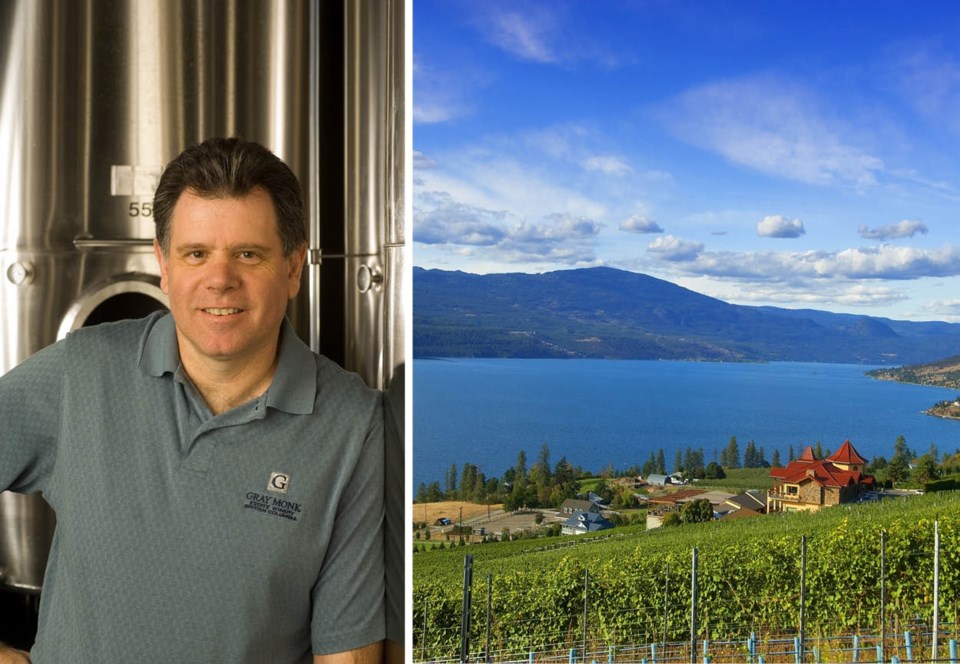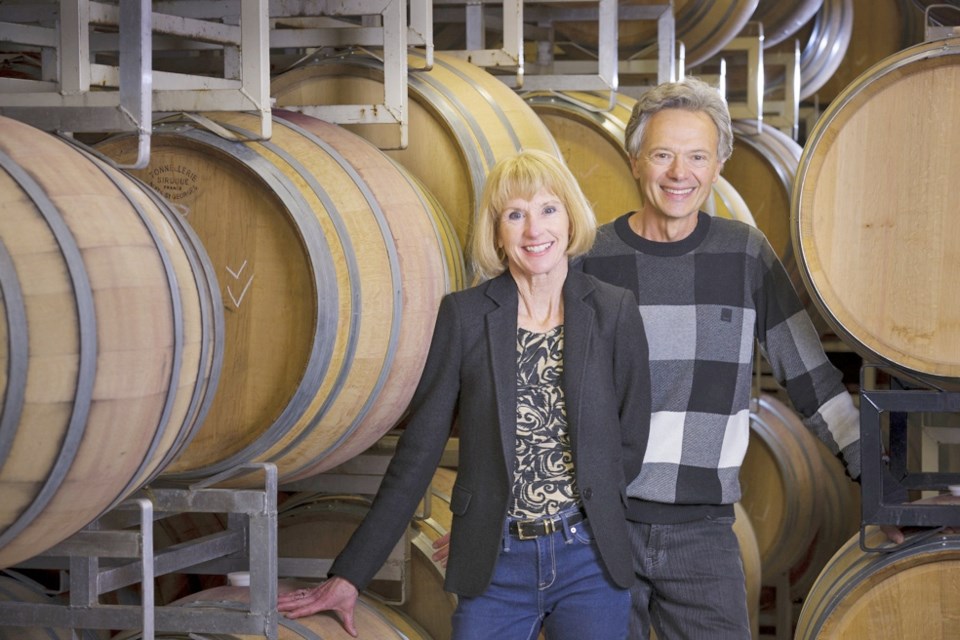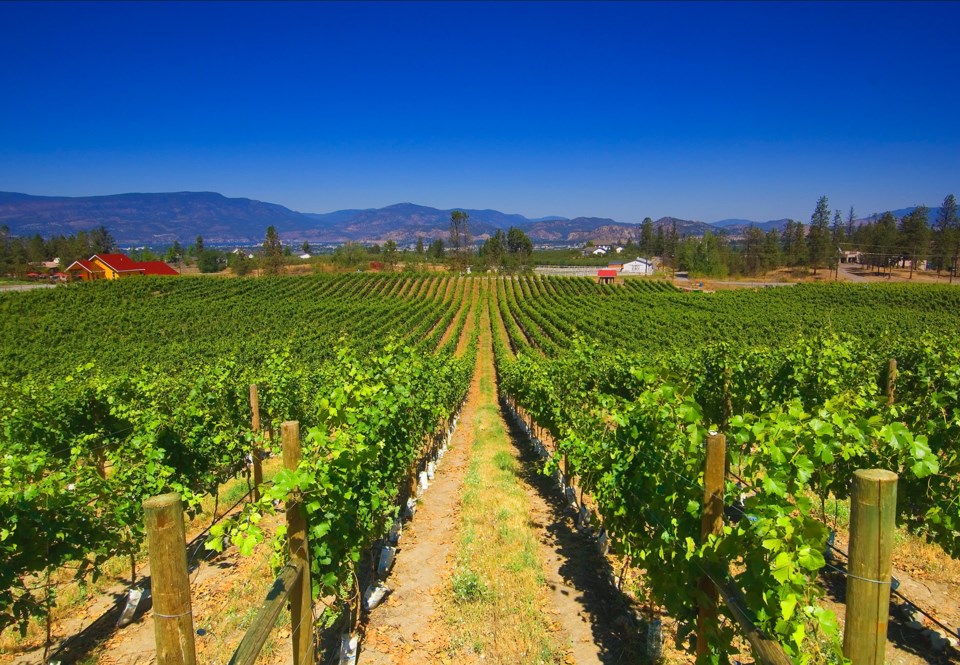Think owning a winery is romantic? "Spend two weeks with me," dares Linda Pruegger, co-owner of Stag's Hollow. "When people visit, they see us sitting on the patio drinking wine and imagine that's all we do." What visitors don't witness for example, is her partner, Larry Gerelus, digging holes and crawling around in them among the black widow spiders to fix irrigation pipes.
Make no mistake, running a winery is tough work. "It's nothing but problems," says Bill Knutson co-owner of SpierHead, only half joking. "In the vineyard, there are all kinds of perils, whether it's disease, mold or the damn birds." To top it all off, in 2013, 90 per cent of SpierHead's crop was wiped out by hail within 15 minutes. In other years, forest fires threaten the Okanagan's vineyards.
Besides dealing with the vagaries of Mother Nature, you then have to make, bottle, market and sell the wine, not to mention navigate all the various administrative and regulatory aspects. And proprietors of small wineries have to manage all of this themselves. "When we started, we wore every hat," says Pruegger. This required working pretty much non-stop. "You really have to want to do it," Knutson cautions.

None of these issues are exclusive to British Columbia, but every wine region has its own unique set. In BC, local support for our wines is fierce; they have never been better and are gaining recognition on an international level. However, this wasn't always the case. Gray Monk COO Bob Heiss recalls when his parents started making wine in 1982: "Back then, BC wine didn't have a good name. Those were the days of Kelowna Red and Baby Duck." Even in the early ’90s, "customers had to be convinced," adds Quails' Gate CEO Tony Stewart. "That made every sale difficult."
Early pioneers like Gray Monk and Quails' Gate helped paved the way for the BC wine industry. They believed the Okanagan was capable of producing high-quality wine, and worked together with a dozen other wineries to convince government, banks, trade and consumers that this was a viable industry. Despite clearing many early hurdles, it isn't necessarily easier today; the challenges have just shifted. Stewart still works 12-14 hour days and those rarely represent leisurely wine dinners in the vineyard.
Increased competition means that sales and marketing remains one of the toughest parts of the business. "There are lots of great quality wines in the valley now," explains Gerelus. When Stag's Hollow was established in 1995, it was one of only seven small “farm-gate wineries” – wineries of five acres or less that were permitted to produce wine and sell it from their premises. Today there are 341 producers registered in BC. "That's a huge change," Gerelus emphasizes.

Another ongoing challenge is the cost. "The Okanagan is among the most expensive vineyard land in the world," declares Heidi Noble, who owns JoieFarm. She quotes the current going rate at over $200,000 plus per acre, estimating that land costs have tripled since she first bought her property on the Naramata Bench in 2002."It's discouraging," says Jay Drysdale owner and winemaker at Bella Wines. "There's a new generation of people who are really passionate about growing but know they can't afford a vineyard."
Drysdale explains that it's not just the land that is expensive; it's also the infrastructure to get started, as well as the supplies and materials. "Even the cost of grapes is more expensive in BC than in other regions," he states. While Drysdale owns a modest three-acre plot, he must also buy grapes so he can produce enough wine to make a living. "However, when you are small, you don't have the buying power."
The strain on purchasing fruit may become even greater. "People in Vancouver are cashing in and are able to buy a little piece of a dream in the valley," says Noble. Wineries who rely on buying grapes risk losing their contract growers who decide to sell, as contracts aren't automatically transferred in the sale.

One can only speculate on the challenges of the future. Tony Stewart, who has been involved with his family's business since 1992, has a vested interest in keeping BC's wine industry sustainable. He believes that big, mid-size and small wineries need to work together more collaboratively to increase tourism to the valley as well as develop export markets. An important piece of the puzzle is keeping prices accessible. "There are a lot of wines coming out that are very expensive," he contends. "This is not a long-term strategy. We as an industry have to be careful that we don't get ahead of our consumer."
In considering the challenges BC faces, Stewart references the late, great Baroness Philippine de Rothschild of Bordeaux, who is famous for saying that the wine business is easy, it's just the first 200 years which are difficult. According to Stewart's calculations, "we have 150 years ahead of us of defining who we are and what this unique region is going to become."
The list of challenges clearly still isn't long enough to scare off the most resilient entrepreneurs. "It's not a glamourous industry," sums up Bob Heiss. "But there are times you get to have a nice meal and a good glass of wine and say, Wow, I get to do this for a living." Perhaps there is some romance.
• Michaela Morris is a renowned Vancouver wine journalist, educator and presenter. She is the weekly wine columnist for the Westender, a contributor to EAT and Taste Magazine, as well as a radio and television regular.



